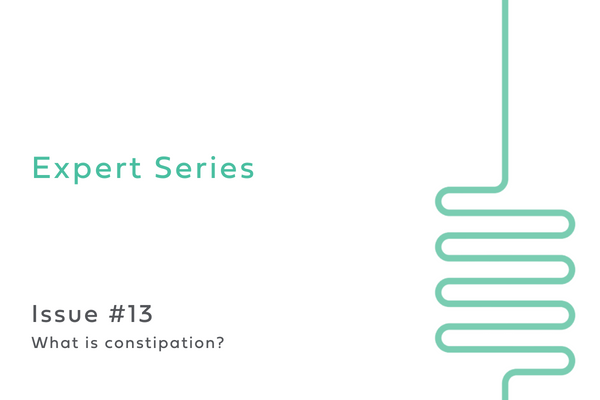Know Your Gut: What is Constipation?

Uncomfortable conversations about gut health are our forte at Aguulp, and we want to normalise these conversations because, let’s face it, we all poop – well in this instance, some of us may struggle to. But this is why we’re here to break down this taboo and remind you that you’re not alone. This edition of the Expert Series is all about constipation; what is constipation, what foods cause constipation, how to deal with constipation, and more. If you’re feeling blocked up, don’t worry – there are ways to get things moving, read on below to find out what you can do.
What is constipation?
Constipation is a condition that occurs when a person has difficulty passing stool (poop) and experiences incomplete bowel movements, or has fewer than three bowel movements per week. While this may seem like a minor issue, constipation can cause significant discomfort and pain, and in some cases, can lead to more severe health problems if left untreated.
Constipation is more than just being uncomfortable – it can lead to a host of other problems in the body. When waste sits in your digestive system for too long, your body isn’t processing its natural waste products normally, which can lead to a variety of health issues.
What’s more, chronic constipation is linked to problems like haemorrhoids, anal fissures, and even colon cancer. Plus, constipation can just make you feel pretty crummy overall, so it’s important to take steps to prevent and treat constipation when it arises. Keep reading to learn how to deal with constipation.
What causes constipation?
So, what is constipation a result of? It’s important to mention that if the constipation you’re experiencing is of a chronic nature (if it’s a long-standing or reoccurring issue), then it would be important to determine what the underlying cause is, in order to address and resolve the issue long term. There are many potential factors that may be implicated in constipation, but here are a few common culprits:
Low-fibre diets: if you’re not getting enough fibre in your diet, your digestive system may struggle to move waste through your system. If you’re wondering what foods cause constipation, you might want to avoid eating too many processed foods, refined grains, and low-fibre snacks, as these can all contribute to constipation. To avoid the risk of foods causing constipation, aim for a diet that includes plenty of fruits, vegetables, whole grains, and legumes. Read more about the worst foods for gut health.
Dehydration: when you’re not drinking enough water, your stools can become dry and hard, making them difficult to pass. Make sure you’re drinking plenty of water throughout the day – aim for at least eight glasses a day, and more if you’re physically active or in a hot climate.
Lack of exercise: regular physical activity helps to keep your digestive system moving. When you’re sedentary, waste can build up in your system. With this in mind, make sure you’re getting plenty of exercise each week – aim for at least 150 minutes of moderate-intensity exercise, like brisk walking, each week.
Ignoring the urge to go: if you consistently ignore the urge to have a bowel movement, you can disrupt your body’s natural rhythm and make it harder to go when you finally do. So, if you feel the urge to go, don’t hold it in – find a bathroom and take care of business.
What helps with constipation?
If you’re looking for advice on how to deal with constipation, there are some simple changes you can make to your lifestyle that should help to get things moving, including eating certain foods and trying gut health supplements.
What foods help with constipation?
Our diet plays a huge role in our digestive function; we know what the worst foods are to our gut health, but there are also foods that can help prevent and relieve constipation. So, what foods help with constipation? Here are some examples:
High-fibre foods: we know that low-fibre foods can be some of the main foods causing constipation. Instead, focus on eating more high-fibre foods; these include fruits like apples, berries, and pears; veggies like broccoli, Brussels sprouts, and sweet potatoes; whole grains like oats, quinoa, and brown rice; and legumes like lentils, chickpeas, and black beans. Fibre helps keep things moving through your digestive system and promotes regular bowel movements. It’s important to add some fibre-rich foods to your meals and snacks.
Probiotic foods: these are foods that contain live bacteria that are good for your gut health. Examples include yoghurt, kefir, kimchi, sauerkraut, and kombucha. Probiotics can help to regulate your digestive system and promote healthy bowel movements.
Magnesium-rich foods: magnesium helps relax the muscles in your digestive tract, which can make it easier to go. Foods that are high in magnesium include spinach, almonds, dark chocolate, and avocado. So, treat yourself to some chocolate every now and again, and feel good tucking into avocado toast for breakfast!
Water: it’s not just important to know what foods help with constipation, as drinking plenty of water is vital too. Staying hydrated is key to preventing constipation, so drink plenty of water throughout the day. Aim for at least eight glasses a day, and more if you’re physically active or in a hot climate.
How to deal with constipation
While these foods can certainly help with constipation, sometimes our diets alone aren’t enough to keep our digestive systems functioning properly. The gut microbiome may also be a contributing factor in constipation, as gut bacteria plays a key role in bowel regularity and motility. It’s important to ensure there is a good balance of healthy versus bad bacteria in the gut and that the bad bacteria do not outweigh the good. Read more about good gut bacteria vs bad gut bacteria.
This is where Aguulp’s Daily Synbiotic supplement can come in handy. Our Daily Synbiotic gut probiotic is a synergistic supplement containing both prebiotics and probiotics in high amounts, and can provide a “therapeutic effect” for those wanting to target the gut microbiome specifically. It can help to replenish healthy levels of bacteria in the gut and is particularly important following antibiotic usage, for example.
In addition, our Aguulp for Gut supplement contains several ingredients that may help to support overall gut health, including gut integrity, inflammation, healthy microbiota balance, and immunity. This includes:
- Three types of soluble fibre (FOS, GOS, and Inulin): soluble fibre is broken down and digested in the large intestine, which helps produce a soft stool and good motions.
- Zinc: this has been shown to reduce inflammation.
- Glutamine: an amino acid believed to help maintain the health of the intestinal tract. It is thought to strengthen the lining of the GI tract so that nutrients are more effectively absorbed.
- Prebiotics: act as a food source to good gut bacteria to help minimise the less friendly bacteria that can inflame and attack the colon.
It can take up to 3 months for supplementation to become fully effective, but along with dietary strategies and increased fluid intake, results may be achieved much sooner. If after a 3-month review, symptoms have not improved or improved then returned, it would be necessary to explore other potential underlying issues or contributing factors.
Want to know more about constipation?
If you have any questions regarding our gut supplements, gut health and mental health, or even general health, send us a message on [email protected] and one of our in-house experts will be more than happy to help. We also have our very own Aguulp Gut Support Facebook group, where you can discuss gut, IBS, or general health problems freely without judgement. You can also sign up to our Aguulp gut health newsletter.
References:
[1] National Institute of Diabetes and Digestive and Kidney Diseases. (2019). Symptoms & Causes of Constipation. https://www.niddk.nih.gov/health-information/digestive-diseases/constipation/symptoms-causes
[2] McRorie, J. W. (2015). Evidence-Based Approach to Fiber Supplements and Clinically Meaningful Health Benefits, Part 2: What to Look for and How to Recommend an Effective Fiber Therapy. Nutrition Today, 50(2), 90–97. https://doi.org/10.1097/NT.0000000000000082
[3] Staller K, Olén O, Söderling J, Roelstraete B, Törnblom H, Song M, Ludvigsson JF. Chronic Constipation as a Risk Factor for Colorectal Cancer: Results From a Nationwide, Case-Control Study. Clin Gastroenterol Hepatol. 2022 Aug;20(8):1867-1876.e2. doi: 10.1016/j.cgh.2021.10.024. Epub 2021 Oct 20. PMID: 34687968; PMCID: PMC9018894.
